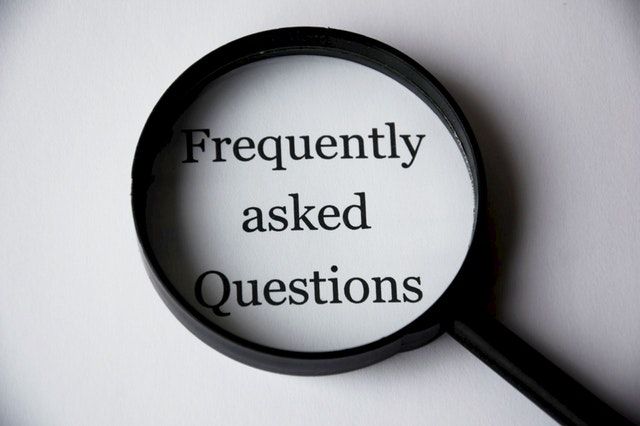Behavioural Interview Questions
Even when applying for technical positions, you may need to answer what are known as behavioural questions; they can be tricky without adequate preparation.

Even if you are applying for a technical position, you will need to be able to answer the type of HR questions known as behavioural questions. Without adequate preparation these can be difficult to excel on.
So what are they? Here are a few examples but they take many varying forms:
- Tell be about a challenge that you faced in your career and how you solved it.
- Is there a project that you worked on that you are really proud of?
- Have you ever been part of a project that failed to deliver all requirements? Tell me about that.
These questions are designed to probe your experience and to find out how you reacted to various difficulties. They allow candidates to select examples for themselves from their years of experience and are open ended.
The key to success for this type of question is to know your own history really well. It is important to be articulate in both the description of the scenario and how you acted to resolve the issue. You need to engage the listeners and keep them interested. Doing this well requires prior research and practice.
Articulation
If you know the details of the projects that you use to answer these type of questions well, and have practiced answering them with a friend or colleague, then you will sound a lot more articulate then if you are trying to recall projects for the first time in years.
This ability to communicate both problems and successes from your past is something that interviewers want to see. The better able you are to explain the scenario, how you acted and the results of your action, the clearer a picture the interviewers will get.
Put yourself into the interviewer’s seat; they are likely to be a complete stranger to you and will know nothing about the projects or technology that you have worked on. You need to be able to clearly and concisely paint an image in their minds about the experience, to let them understand the challenge etc., and then to show how your action was instrumental to resolve the problem.

Sometimes we fail. Don’t hide from these events, but try to come up with a positive. It might be that you learned something and changed a process so that the problem will not happen again. Everyone learns from mistakes; that’s just a part of life. Practice describing your learning experience, including, if necessary, how it arose from a failure.
If you are able to recall the events clearly that match the question, and articulate them in an understandable way, then you will be able to engage the interviewer more fully. The more engaged they feel in the problem description and your actions, the clearer a sense of your abilities they can glean from the answer.
The best way to answer articulately is to review your career, selecting projects or challenges that fit the different categories of questions. Then practice talking about them with someone; it doesn’t matter that the person is technical or not, or whether they fully listen or understand. You are getting practice talking to a real person about your professional experience and that is what counts.
Get Your Facts Right
You need to know your own history and know it back to front. The interviewers will have a copy of your CV or Resume in front of them and probably have read it and reread it thoroughly. They do not want you to simply recap the elements that are written there; they are looking to dive into the detail that would not fit on this one or two page document (you kept it short didn’t you?).
However, they may want to tie back a particular project to a period on the CV. This might be to find out what company or industry that you were in at the time or at what level of experience you were at. While it may not be critical to understand the answer that you are giving, it helps interviewers to have this grounding so that they can fully appreciate the details of the story.
In a typical, one-hour interview, there are likely to be at least five to ten starter questions, the number depending on how long you can talk for or on follow up questions. If you are articulate and interesting, interviewers will probably ask follow up questions rather than begin new lines of enquiry. Better to engage a lot with them and have fewer starting questions.
Depending on the level of experience you have and the strength of your preparation, you may have to use the same project to answer more than one of these questions. It’s not ideal, but as long as you are consistent about the facts, the interviewer will not hold it against you.
So it is really important to get the details right. Don’t make anything up. Don’t mix all the dates up. Don’t exaggerate your involvement or even worse don’t play down your role in the solution. Just be honest and open.
What are Interviewers Looking for?
A CV is too short a document to get a proper feel for how the candidate is going to get on in a company. It really only helps as a method to screen candidates – to rule them out. It also gives some context for interviews, so that both sides have some common ground and understanding.
Even a single, hour-long interview is probably too short to really judge whether a candidate will be a successful match for a company. You cannot tell simply by talking to someone how they might react to the pace, atmosphere and culture that exists in the company. But they want to see self awareness from candidates.
Given the experience that the candidate brings up, they want to know the scale of the event, the exact role of the candidate and what the outcome was. Diving deeper, they want to figure out what behaviour the candidate showed throughout the experience and how they interacted with other people.
Any issues that arose or any constraints that were imposed are of interest. By recognising them, the candidate shows an appreciation of the wider impact of their work within the company.
Not all experiences may have learning outcomes, but the question “What would you do differently, if the same issue arose?” can allow some retrospection on the part of the interviewee. When looking back and listing the events that you might bring up in this form of interview, it pays to have considered in advance what you might have learned or would do differently if faced with the same situation again.
Storyteller
Being able to explain the details in a way that engages an interviewer can be challenging. Think about about a story that you are told that goes nowhere or does not seem to have a point. It is easy to lose interest and get distracted. That must be avoided at all costs.
You have an extremely limited amount of time to impress your potential future employer. Even though speaking about your career for up to an hour might feel daunting, this may be your only shot to show off your abilities. You need to be interesting, clear and engaging while also keeping the story as close to the question as possible.

Think of an answer to these questions as being like telling a story. Elements of a good story are that you have all the facts prepared in advance and can tell them in the right order without going on for too long. It takes practice to do this. As part of your preparation for behavioural questions you need to have reviewed the details and practiced speaking them aloud.
It is not enough to do so on paper or to simply say the words in your head. It is simply too easy for our minds to fill in the blanks; the missing details that make stories difficult to follow. Saying them aloud takes away this short-circuiting of the story.
It may be difficult to ask a friend or colleague to help you prepare by posing these questions, and it will probably feel awkward in the extreme, but really it is the best way to prepare. If possible, try to ask someone that may need you to return the favour at some point down the line. Then it might feel easier to ask for the favour.
If you can find no one to help, try standing in front of the mirror and say them out load to yourself. Practice keeping eye contact while you talk, breaking it occasionally to not appear like you are staring, and concentrate on the expression you have while talking. Does it match what you are saying? This sort of practice will not help you catch things that only you understand, but it is useful if there is no other practice option available.

There are plenty of websites out there that give examples of the potential questions that you can answer, but they fall into a number of categories. You should try to find a few examples for each by combing through your career history. Choose two or three that are most relevant for each one and begin practising.
Here are a couple of broad examples:
- Challenges
- Dealing with difficult people: team mates, bosses, clients
- Tight deadlines
- Things you are proud of or enjoyed
- Bad decisions or failures
- Things you would do differently.
The pattern for answering them is always the same. State the problem in a few sentences. Tell the interviewer what actions you took and the outcome. Wrap up with what you learned or things you would change were you to have a chance to do it over.
As with all parts of the interview process, behavioural questions require you to prepare in advance and get practice. Software engineers often think this part of recruitment is less important than technical interviews, but in any on boarding process, there is going to be some involvement from human resources. They cannot validate the technical skills of candidates, but do want to hire people that can speak about their experience with candour and intelligibility. Often the HR partner will have the final say before offering a place. Make sure that you do not neglect this skill.
